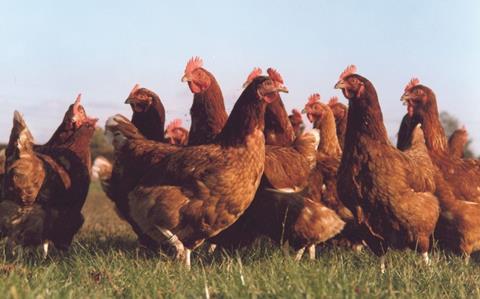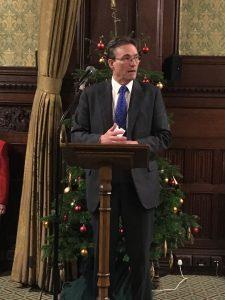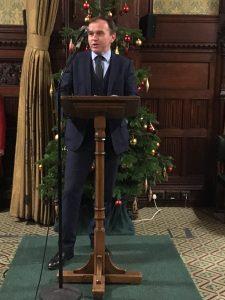The Government chief vet has declared a Prevention Zone introducing enhanced biosecurity requirements for poultry and captive birds, helping protect them from a strain of Avian Flu circulating in mainland Europe. The zone covers England and will remain in place for 30 days.

Keepers of poultry and other captive birds are now required to keep their birds indoors, or take appropriate steps to keep them separate from wild birds.
Outbreaks of Highly Pathogenic Avian Influenza (H5N8) have been confirmed in poultry and wild birds in several countries across Europe. No cases of H5N8 have been found in the UK and this order is a precautionary measure to help prevent potential infection from wild birds.
Defra is continuing to monitor the situation closely and has increased its surveillance activity, while keepers are being urged to reinforce biosecurity measures on their premises.


Chief veterinary officer Nigel Gibbens said: “While no cases of H5N8 avian flu have been found in the UK, and PHE advises the public health threat is low, we are closely monitoring the situation across Europe and have scaled up surveillance in response to the heightened risk.
"As a precaution, and to allow time for poultry and captive bird keepers to put in place appropriate biosecurity measures, we have declared a 30-day Prevention Zone to reduce the risk of infection from wild birds.
“Even when birds are housed a risk of infection remains so this must be coupled with good biosecurity—for example disinfecting clothing and equipment, reducing poultry movement and minimising contact between poultry and wild birds.”
British Poultry Council (BPC) chairman John Reed has welcomed the decision.
Speaking at the BPC Annual Awards on 6th December, Reed commented: “We’ve been in constant dialogue with Defra to ensure we are best prepared should this risk heighten and make sure plans are in place and they are under constant review. We are pleased today to welcome Defra’s decision to bring in enhanced biosecurity requirements for poultry and captive birds, including temporarily housing poultry in England. This is a precautionary measure to help reduce the risk from this particular strain of Avian Influenza circulating around mainland Europe.”
Defra Minister of State George Eustice added at the event: “We believe that as a precautionary measure, given that this is also a particularly sensitive time of year for the poultrymeat sectors, that the right thing to do was to put in place a housing order to we can try to reduce any potential contact between wild birds and free range chickens and turkeys. During this next 30 days we are going to up our surveillance and do further work to try to identify whether or not we have this disease and we also want to do more during the 30 days to identify whether there is anything further we can do to tighten biosecurity on individual farms.”
Robert Gooch, chief executive of the British Free Range Egg Producers Association (BFREPA), has described the decision as “a necessary step”.
He added: “The risk of infection is from wild migratory birds who are leaving cold weather feeding grounds and could head to the UK, carrying with them the potential to bring the H5N8 strain to our shores.
“It would be devastating for a British producer to have to go through the heartbreak of seeing their entire flock wiped out by this virus as we have already seen in continental Europe.”
The Scottish Government has also imposed a 30 day Prevention Zone housing order.
This story was originally published on a previous version of the Meat Management website and so there may be some missing images and formatting issues.















